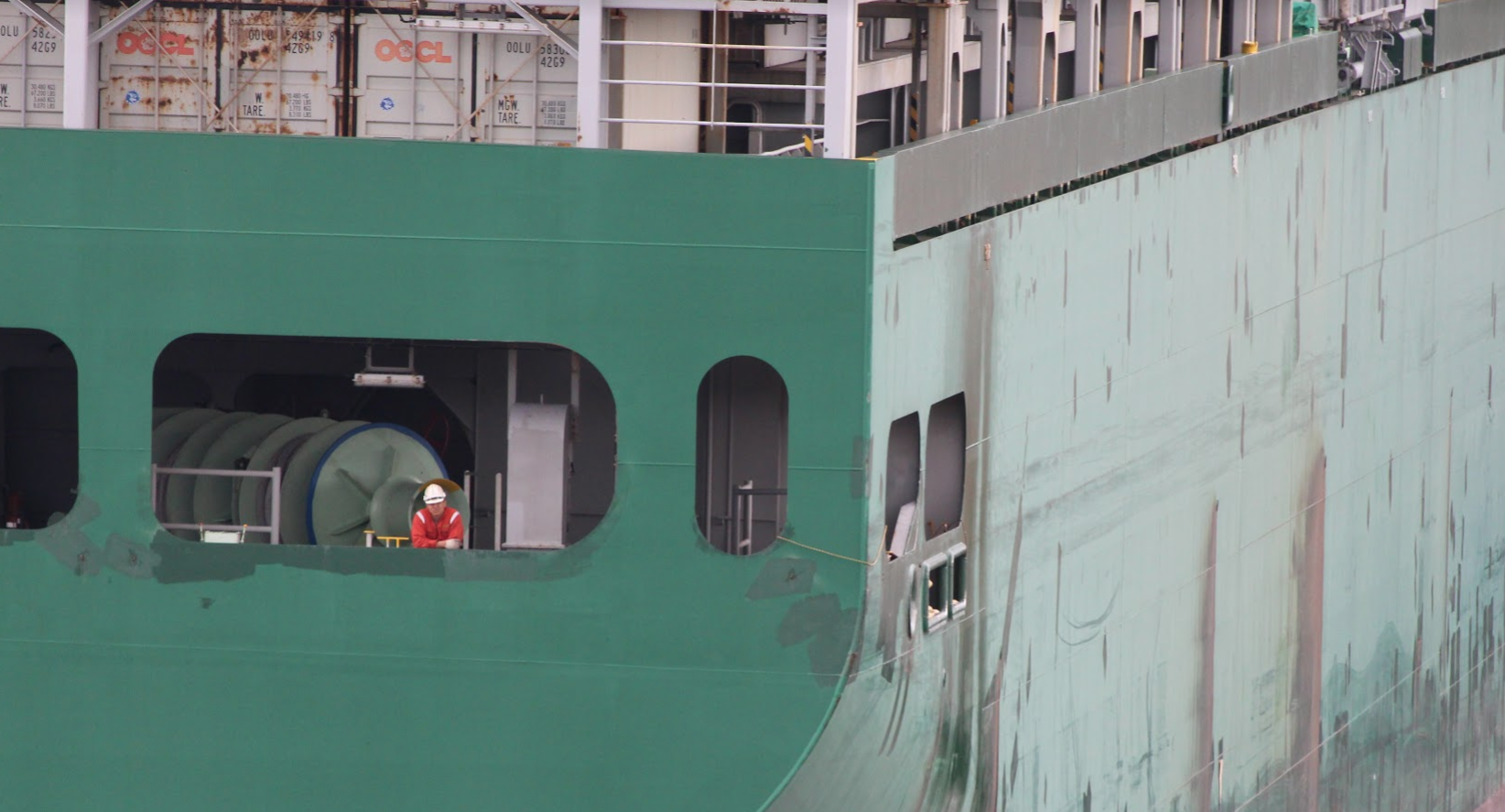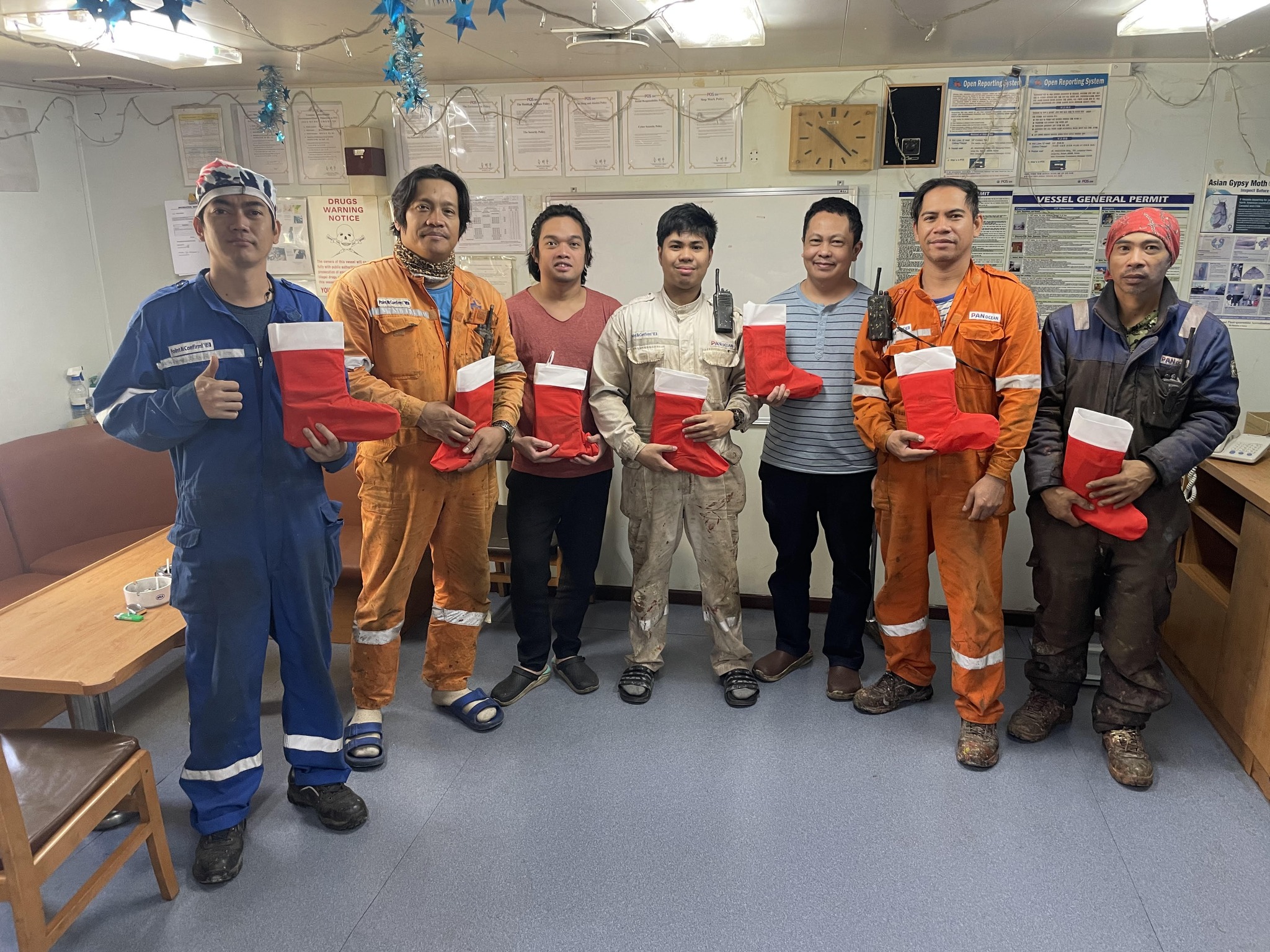By Susan Huppert, NAMMA
Isolation goes viral
The poet John Donne’s line, “no man is an island,” is not only great poetry, but a human reality: people need to be connected. Yet loneliness and isolation seep into our lives even in a time of unmeasured options to be in touch. Connect is the new buzzword among churches and advertising appeals. Many churches are prioritizing small groups to develop cohesiveness among parishioners. The 19th U.S. Surgeon General Vivek Murthy made news in 2017 when in an article for the Harvard Business Review he identified loneliness and isolation as an epidemic healthcare crisis. Not an issue or consideration – a crisis.
Chaplains and other caregivers often have to wrestle with loneliness because of the position they occupy on the outskirts of meaningful relationships. Chaplains give from the gut. The work they do is not merely mechanical, but the sacrificial work of being present to others in need. In seafarer chaplaincy the needs are often personal and critical. Chaplains board ships specifically to be face-to-face with people who have no one else designated to care for them. The number of ships and seafarers in port often exceeds their availability.
Caregivers are tied to the work they do not because the pay or benefits are great, but because of a core commitment to care for others’ emotional and practical needs. It is part of the essence of this commitment that the caregiver cannot expect those for whom they care to be able to reciprocate; the isolation of the cared-for is unfortunately often even greater than the caregiver’s. Whether following Christ’s command to love a seafarer even when we may never see again, or caring for a family member who may never get “better,” when we invest ourselves in caregiving, we quickly learn just how real isolation is.
Serving in obscurity
Chaplains can also feel isolated in their own communities. When people are unfamiliar with what you do, they find it difficult to connect. Reverend Ron Baker, former board president for Anchor House, Inc. in Port Manatee, Fla. describes the dynamic of serving in obscurity:
“Anybody heavily invested in caregiving, because of the level of their investment, will not be understood by their peers. People will not be able to relate to chaplains when there is no shared interest. Most people don’t have a deep curiosity for a world that is different than their own. They do not have the ability to dialogue deeply with those who have a world unlike theirs. So if the curiosity level is low they cannot care deeply.”
Chaplain Michelle DePooter-Francis serves as chaplain in the Port of Montreal, where she began as an intern 19 years ago. Despite the city’s major port and waterways, she still finds that the public is ignorant of what the shipping industry includes. Outreach and the plight of seafarers remains behind a fog. “They [the public] have no frame of reference,” she said. When visitors tour the Port of Montreal, I commonly hear, ‘I had no idea this was here.’”
Chaplain DePooter-Francis seeks larger groups like prayer meetings to connect, but finds blending a challenge. She meets monthly with a peer group of Christian Reformed pastors, but her contribution is foreign to them. The challenges she faces have no connection with theirs. She says that when you don’t fit, you can tend to withdraw and become lonely: “It is easy to become isolated.”
Feedback is similar across the continent. “A lot of people don’t understand and are unaware of ministry among seafarers,” agrees Reverend Philip Vandercook, director of Global Maritime Ministries in New Orleans. Even though 90 percent of what we use in our lives moves on a ship at some point, “many don’t think about ports or that there are people living and working on ships.”
Challenges of serving
Vandercook oversees six chaplains in two ministry centers. He has been the director since 1991 and spent 35 years in service to seafarers. He contends that another reason isolation exists in chaplaincy is the nature of the work and its demands on one’s schedule.
Serving a community of people who are mobile and have restricted access to support because of working hours or visa restrictions means a chaplain needs to be available when the seafarer is free. Consequently, some chaplains are challenged to attend religious services regularly. This is particularly hard in smaller ministries where the chaplain is the only full-time staff member. This represents not only detachment from spiritual care, but also from some of their most intimate social circles.
Isolation among chaplains is magnified on the waterfront, where the contact with those served is brief and the needs are varied. Beyond typical daily tasks, port chaplains find themselves in intense situations: responding to a death at sea, maintaining financial support for a tight budget, and addressing seafarers’ personal or family needs, for example. The inability to solve problems for seafarers within the narrow windows of time before their ships sail adds to the stress. In addition, continuity of care remains difficult as the next port may be in another country with no chaplain to follow-up or partner with. The task can feel massive, and it may feel like there is noone to turn to.
Challenges to finding care
Where can this unique brand of spiritual servants turn when they discover that there is no longer within themselves enough to meet the personal needs of those who dock at their port? Electronic communication is available, but at times not enough. Chaplains need trusted people who understand their experiences, comrades among the ranks who can connect and care. Reverend Baker, who before his presidency of the board of Anchor House was also a Christian Reformed minister, summarizes the challenges of leadership:
“The more a person is in leadership, the greater the risks that come with disclosure. Strong character involves seeking help when needed, yet to confide in a superior may be viewed as weakness, or a board member may interpret a chaplain’s challenges as inadequacy. These cautions prohibit care for the caregiver and exacerbate the sense of isolation.”
Chaplaincy itself is a strange experience. Chaplains can get so wrapped up in the challenges or crises at hand that their self-care and personal needs move to a back burner, leaving them too crippled to give the very care they sought to. Retired Chaplain Tim Huppert notes this was true when he accepted his first call to Port Manatee, Fl. to develop Anchor House:
“My family was young when I began at Port Manatee. I was busy with development of a mission and managing outreach to seafarers at the same time. I spent way too much time at the port, because the need was great.
“It is easy to justify these commitments because the seafarer’s need is right in front of you. The overpowering need of others was always gnawing at me. Since the need was obvious, I avoided the nudges to be home more. It almost forced me to an early retirement from a ministry I cared deeply about. I had to step away and re-evaluate.”
The need for care
Reverend Vandercook’s ports of New Orleans and South Louisiana jointly see 27,000 seafarers annually. “Chaplaincy, in addition to tending to personal life and health issues, is a very overwhelming task,” said Vandercook. “Right now, I know chaplains who are hurting. In my life, my family faced challenges that I could not talk to others about. Personal crisis affects your ability to do ministry.”
It is one thing to tell someone what they need to do for themself to remain well. It is another for them to implement the practice when the tasks waiting in an office or on the deck of a ship seem overwhelming.
Some chaplains and caregivers find guilt in respite and difficulty in understanding that rest is an action word. The Navigators discipleship tool, Tyranny of the Urgent, challenges readers to examine how we prioritize our uses of time in our Christian service. To turn the lights off and go home for a time may be the best thing we can do for those we serve.
Caregivers in leadership positions confide that they need a close friend, a trusted leader, a person with whom they can talk out loud. They need to vent or grieve and know it is all okay. Associations that hold regular conferences like the North American Maritime Ministry Association (NAMMA), Apostleship of the Sea – North American region, Apostleship of the Sea Canada region, Port Ministries International (PMI), Apostleship of the Sea-USA, and the Mission to Seafarers Canada region have intentionally become places where vulnerability is safe. Conferences offered by these groups are crucial for chaplains. Seafarers’ welfare workers benefit from the updates and information on best practices there, but, just as importantly, they find camaraderie, fellowship, support and prayer.
Still, there is more to be done.
A 2010 study by professor of psychology Julianne Holt-Lunstad noted that people with strong social connections were significantly less likely to die over a given period of time than those who were more socially isolated. She wrote that as we become increasingly aware of the importance of social connections, governments from Australia, Denmark, Japan and the UK are starting to take loneliness more seriously. British lawmakers have set up a commission to tackle loneliness. In April 2017, the US Senate Committee on Aging held a hearing on the subject. Sen. Mike Lee launched a multi-year study of social relationships in our lives, including workplaces. The World Health Organization lists “social support networks” as a positive health factor.
Vandercook believes that if we are not caring for ourselves, isolation and loneliness will increase. Chaplains who cannot develop a personal safety net have become as needy as those they serve, and in so doing deprived seafarers of the care they wanted to give them.
“The greatest thing we need is a chaplain to chaplains. The people in NAMMA were there for me when I struggled. We need to do more of that,” said Vandercook. “Life is hard. But we are not alone.”





